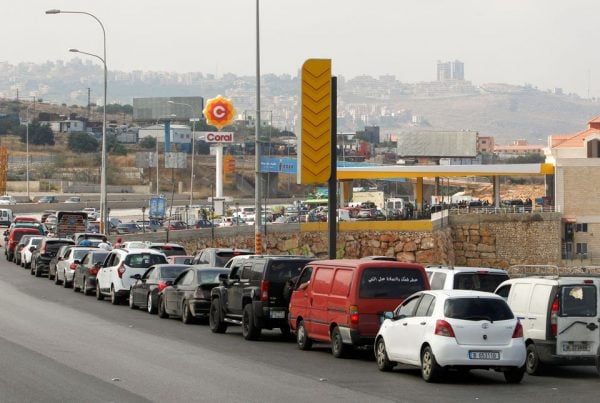
Media reports say that the Lebanese fuel crisis has taken its toll on the media sector with three radio stations and a TV channel temporarily suspending broadcast activities. The independent radio Sawt El-Shaab announced on Friday the temporary suspension of its programs, because the guests could not reach the radio’s offices due to the fuel crisis. The political party Future Movement’s radio Al-Sharq and Future TV also announced the suspension of broadcasting.
Radio Al-Sharq’s director, Kamal Richa, told Arab News: “The radio station, which was established in 1994, has never stopped broadcasting. But we had to turn off our generators due to the shortage of diesel, and the broadcasting stopped a few days ago.”
Both outlets, owned by former Prime Minister Saad Hariri, faced a severe financial crisis a year ago and a large number of the staff was laid off.
Richa added: “The radio administration secured on Saturday a quantity of diesel and informed us that we can resume broadcasting on Sunday, starting at seven in the morning. However, we might have to stop broadcasting again, as nothing is guaranteed in Lebanon.”
Information Minister Manal Abdel Samad requested support for the media sector but with no response. Minister Abdel Samad said: “Even Radio Liban, which speaks on behalf of the state, stops broadcasting whenever the electricity is cut off from the transmission centres spread across all Lebanese territories, and the government-owned Télé Liban (TL) will gradually stop broadcasting. The TL administration said that broadcast is being suspended between midnight and seven in the morning in order to save on fuel.”
She added that she had “sent letters to the minister of energy and the army commander, requesting support for official and private media institutions, but neither responded.”
The Lebanese Army Command announced on Tuesday that “a three-day crackdown” had taken place by units that resulted in the seizure of 4,392,725 litres of gasoline and 221,140 litres of diesel that had been stored for smuggling on the black market or for sale at high prices.
“The owners of these quantities were obliged to either sell them at the subsidized price or they would be seized and given to hospitals, bakeries, and private generators that have stopped working or are about to stop,” it said.
The Audio-Visual Media Workers Syndicate plead to Abdel Samad “to seek with those concerned to find a special mechanism that allows workers to obtain gasoline, to facilitate the task of media professionals.”









